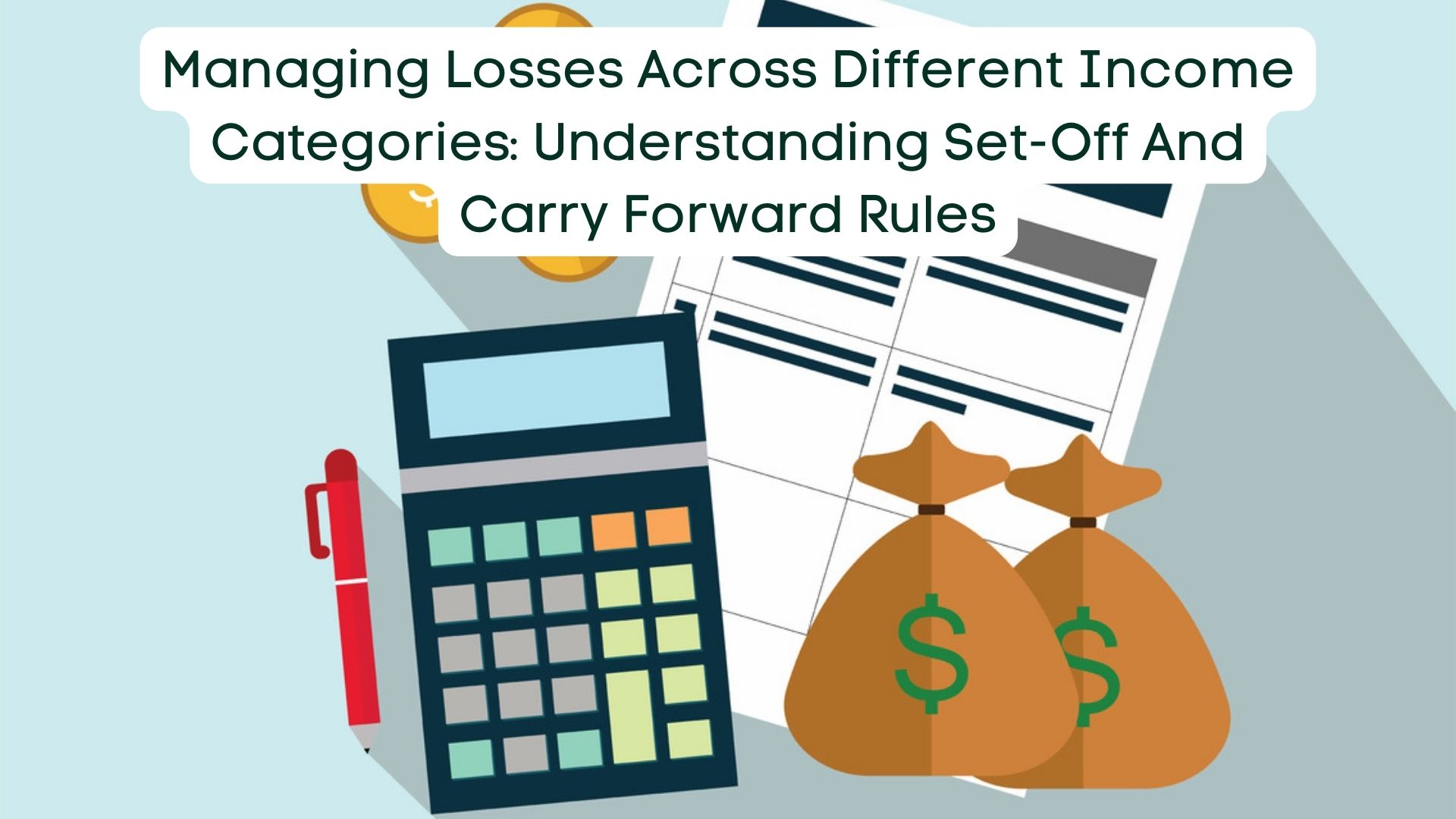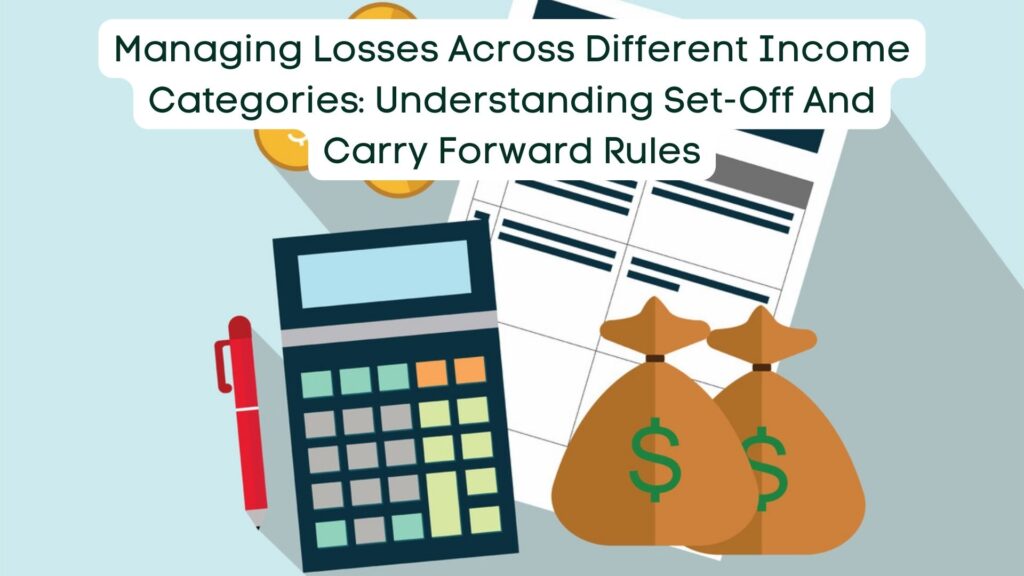
23 Feb Managing Losses Across Different Income Categories: Understanding Set-off and Carry Forward Rules

In the realm of taxation, the treatment of losses incurred from exempted sources against taxable income is a critical aspect. When income originates from a source that is exempt from taxation, any associated losses cannot be offset against taxable income. This article delves into the intricacies of Set-off and Carry Forward of Losses across Five Heads of Income. Before delving deeper, it’s imperative to grasp some fundamental concepts regarding losses.
Understanding Set-off of Losses
Set-off entails the adjustment of losses against earnings from either the same or different sources of income within a fiscal year. Essentially, it involves balancing losses against the profits or revenues of a particular year.
Losses that remain unutilized in a given year can be carried forward and offset against income in subsequent years. Set-offs are categorized into two main types: intra-head set-offs and inter-head set-offs.
Types of Set-off Losses Include:
- Intra-head Set-off:
- Losses incurred within a specific category of income may be set off against gains from another source under the same category.
- Exceptions to this include speculative business losses, where profits from any other business or profession cannot compensate for the losses incurred.
- Long-term capital losses can only offset long-term capital profits, while short-term capital gains may be offset by both long-term and short-term capital losses.
- Losses from one company can only be offset against earnings from other companies within the same industry.
- Inter-head Set-off:
- Following intra-head adjustments, any remaining losses can be balanced against income from other heads of income.
- For instance, household losses can be deducted from income under any category except salary.
Understanding Carry Forward of Losses
Even after intra- and inter-head adjustments, there may still be unabsorbed losses. These losses can be carried forward to subsequent years and offset against future revenues. The rules for carrying forward losses vary depending on the source of income.
Considerations for Carrying Forward Losses Include:
- Household Property Losses: Can be carried forward for up to eight assessment years from the year of the loss, applicable only to revenue from residential properties.
- Speculation Business Losses: Divided into non-speculative and speculative business losses, each with distinct carry-forward provisions.
- Section 35AD of Income Tax Act, 1965: No time restriction on carrying forward losses from specified businesses under this section.
- Capital Gains: Losses under the capital gains heading can be carried forward and set off against subsequent years' capital gains according to specified criteria.
- Racehorse Ownership Losses: Can be carried forward for up to four assessment years and are only deductible against income from racehorse ownership.
Principles of Set-off and Carry Forward of Losses:
- Losses from tax-free sources cannot be set off against taxable income.
- Losses cannot be offset against non-business revenues such as lottery winnings or gambling earnings.
Key Takeaways
- Taxpayers should ensure appropriate adjustment of losses in the year they occur to avoid complexities in subsequent years.
- The Income Tax Department's provisions safeguard the interests of taxpayers who suffer losses by providing avenues for their offsetting and carry forward.
By understanding the nuances of set-off and carry forward rules, taxpayers can effectively manage losses across different income categories, ensuring compliance with taxation laws while optimizing their financial outcomes.


No Comments